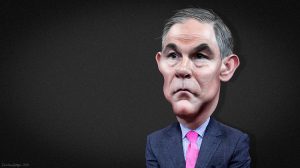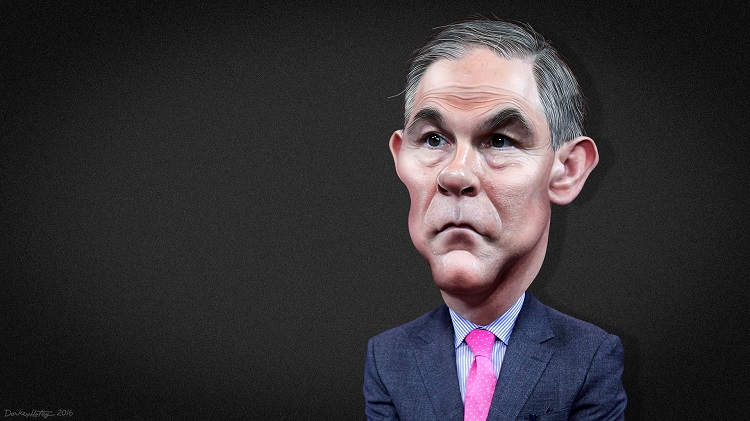This week in political economy.

- Facebook acknowledged this week that the Cambridge Analytica data breach affected 87 million users (reportedly including 2.7 million Europeans)—37 million more than previously reported. “To this day, we still don’t know what data Cambridge Analytica have,” Facebook COO Sheryl Sandberg told the Financial Times. Next week, Facebook founder and CEO Mark Zuckerberg will testify before the Senate Judiciary and Senate Commerce, Science, and Transportation committees and the House Energy and Commerce Committee. In the meantime, Zuckerberg and Sandberg are still trying to mitigate the PR debacle: in an interview with Vox’s Ezra Klein, Zuckerberg said, “it will take a few years” for Facebook to resolve its issues and waxed philosophical about a creating a new (seemingly Facebook-led) “Supreme Court.” In an interview with BloombergTV, Sandberg claimed: “We’ve never run this company to maximize profits.”
- From The Verge: for all its talk of the need for increased transparency, Facebook secretly deleted messages Mark Zuckerberg sent on Facebook Messenger.
- In his Vox interview, Zuckerberg addressed Facebook’s role in the ethnic cleansing of Rohingya Muslims in Myanmar, saying that the “Myanmar issues” are “real issues and we take this really seriously.” Subsequently, Human Rights and civil society groups in Myanmar attacked Zuckerberg for mischaracterizing Facebook’s effectiveness at detecting hateful content, accusing Facebook of routinely failing to erase messages inciting violence in a timely manner.
- In the New York Times, Tim Wu takes a skeptical view of Facebook’s promises to fix its culture and contends that Facebook is beyond redemption and should simply be replaced by better, hopefully more ethical platforms. “Every business has its founding DNA,” he writes. “In Facebook’s case, we are not speaking of a few missteps here and there, the misbehavior of a few aberrant employees. The problems are central and structural, the predicted consequences of its business model.”
- From the Financial Times: the Facebook scandal puts the FTC’s reputation at stake.
- French president Emmanuel Macron: Facebook and Google are becoming too big to be governed.
- Trump’s war against Amazon founder and CEO and Washington Post owner Jeff Bezos drastically escalated this week, after the president posted a series of tweets attacking Amazon for benefitting from billions’ worth of subsidies from the US Postal Service and avoiding state and local taxes, thus gaining an unfair advantage that it uses to put thousands of retailers out of business. Enraged by the Washington Post’s critical coverage of his presidency, Trump is reportedly considering pressuring the USPS to increase Amazon’s shipping costs and cancelling Amazon’s pending, multibillion-dollar cloud services contract with the Pentagon. While Trump’s attacks on Amazon have led some investors to fear possible antitrust charges against the company, the Wall Street Journal explains why this is unlikely.
- In the New Republic, David Dayen examines the Trump/Amazon conflict and explains why, while Trump’s attacks on a private firm due to a private vendetta are cause for alarm, Amazon deserves “no sympathy”: “The most important fact to remember amid [Trump’s] spat with Amazon,” he writes, “is that the government has been propping up the company for the entirety of its existence.” The Wall Street Journal also reviews Amazon’s booming government-related activities and notes that, curiously, in all of Trump’s attacks on the company, “he hasn’t mentioned Amazon’s federal government business.”
- Meanwhile, reports the Financial Times, Amazon has already assembled “tech’s largest in-house lobbying team.”
- Sinclair Broadcast Group, the country’s largest owner of local news stations, is currently under fire following a promotional video in which dozens of news anchors were ordered to read a script decrying “the troubling trend of irresponsible, one-sided news stories plaguing our country.” The growing backlash has led to resignations, rebellions, and political pressures amid revelations, leaks, and insider accounts about the way that Sinclair has wielded power over broadcasters—from draconian contracts to Sinclair’s reported policy of “closely monitoring” its employees.
- President Trump’s rush to Sinclair’s defense has also highlighted Sinclair’s strong political bias in favor of Trump and brought renewed attention to Sinclair’s $3.9 billion proposed purchase of Tribune Media, which would vastly expand the company’s reach was made possible when Trump’s FCC loosened media ownership rules (FCC chairman Ajit Pai is currently being investigated by the agency’s inspector general for his ties to Sinclair in relation with the decision). In the New York Times, Zach Wichter writes about the reignited debate on media ownership. FCC Commissioner Jessica Rosenworcel took to Twitter and went against her own agency this week, tweeting that the FCC’s “big media policy decisions all seem custom-built for the business plan of Sinclair Broadcasting.”
- Scott Pruitt’s seat is reportedly on fire following the revelations that he rented a room near Capitol Hill in an apartment that belongs to the wife of an energy lobbyist for the price of $50: the Washington Post reports that the EPA chief used an obscure provision in a law having to do with water safety to hire at least two ex-lobbyists and several other aides. From the New York Times: at least five EPA officials—four of them high-ranking—were reassigned or demoted or requested new jobs in the past year after they raised concerns about Pruitt’s conduct and spending. As an Oklahoma politician, Pruitt received $181,000 in political contributions from donors who lobbied the EPA last year, report Andrew Perez and Laura Curlin in Maplight. Meanwhile, 15 attorneys general and the city of Chicago are suing the EPA for not enforcing pollution controls.
- In the New York Times, David Leonhardt pens a “mea culpa” for having previously ignored America’s “oligopoly problem.”
- From CNN’s Hadas Gold: Six Key Takeaways from the AT&T Trial So Far.
- From the American Lawyer: White-collar cases are seeing a rapid decline under the Trump administration, but “big firms [are] still finding work.”
- The Nation’s Katrina vanden Heuvel on big money in politics: “The cost of elections today increases the power of the privileged few while diminishing that of working Americans and, as such, harms democracy itself.”
- The New York Times’ Eduardo Porter covers Bertrand et al.’s Stigler Center paper on firms giving to charity to influence politics, which we have also covered here.
Chatter from the Ivory Tower
- The current issue of the Economic & Labour Relations Review offers a symposium on inequality in honor of Tony Atkinson with contributions from Joseph Stiglitz, Thomas Piketty, and Jayati Ghosh, among others. Piketty writes of Atkinson: “During the past half-century, in defiance of prevailing trends, he placed the question of inequality at the centre of his work while demonstrating that economics is first and foremost a social and moral science.”
- Sharun Mukand and Dani Rodrik have a new discussion paper out juxtaposing the role of ideas (specifically worldview politics and identity politics, between which, they argue, there are often reinforcing complementarities) in policymaking with the “more fashionable Stigler-Becker (interests only) approach to political economy.”
- At Project Syndicate: Will China really supplant US economic hegemony? Kenneth Rogoff opines.
Stigler Center Goings-on
- In the latest episode of the Capitalisn’t podcast, Luigi Zingales and Kate Waldock talk to former Commodity Futures Trading Commissioner Sharon Bowen, who tells them how she helped bring transparency to the market after the 2008 financial crisis and visited a few grain silos along the way.
- On April 19 and 20, 2018, the Stigler Center will dedicate its annual Antitrust and Competition conference to the topic of “Digital Platforms and Concentration.” The invitation-only conference will bring together economists, law scholars, intellectuals, venture capitalists, and business people for two days of discussion, with keynote speakers Makan Delrahim, assistant attorney general of the Department of Justice’s Antitrust Division, Alvin Roth, the 2012 Nobel laureate in economics, and Jean Tirole, the 2014 Nobel laureate in economics. More details here.
Disclaimer: The ProMarket blog is dedicated to discussing how competition tends to be subverted by special interests. The posts represent the opinions of their writers, not necessarily those of the University of Chicago, the Booth School of Business, or its faculty. For more information, please visit ProMarket Blog Policy.






